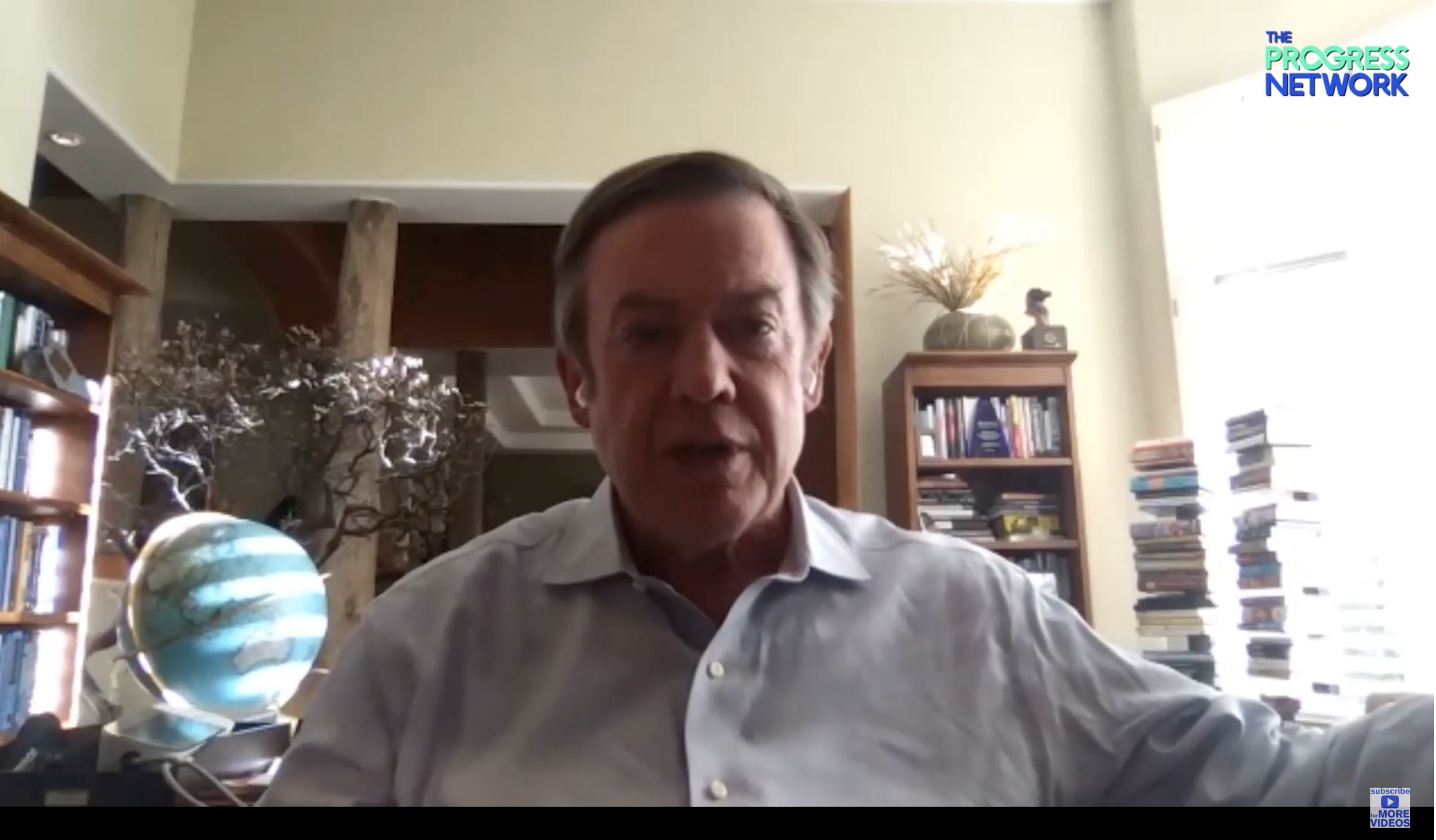Higher education has myriad equity issues: The gap between “elite universities” and other institutions continues to increase, tuition prices are inaccessible for most and admission requirements are unattainable for many. The higher education model is in need of a remodel. The pandemic has accelerated some of the trends already in place to disrupt the traditional model of higher education. With these changes being set into motion, what does the future of higher education look like?
“There’s almost nothing more forward-looking and potentially optimistic than higher education,” said Zachary Karabell, the founder of The Progress Network, a nonprofit news organization based out of New America that publishes contributions from experts in politics, health, science, foreign affairs, climate change, technology, psychology, race relations and economic outcomes. “You go to school to try to enrich yourself. You try to figure out what you’re going to do with your life, presumably because one believes that there is a world to be worked in and constructed. That process of going to school is an integral aspect of being launched on a more constructive path. At least in theory.”
Karabell moderated a panel with several higher education disrupters, including Arizona State University President Michael Crow, in a recent event co-sponsored by The Progress Network and ASU that considered what is next for the sector — and how the COVID-19 pandemic has affected the rate of change.

ASU President Michael Crow discusses the future of higher education and equity issues during a panel discussion co-sponsored by The Progress Network and ASU.
“This has been an accelerant year,” ASU President Michael Crow said. “It's definitely not anomalous. It is basically an exemplar of where we’re headed. During this pandemic we shut off the force fields around ASU that were keeping people out unnecessarily and undemocratically. We dug them up and threw them away.”
Shifts toward greater access at some institutions may widen the divide between institutions concerned with maintaining their image as a “top university” and institutions committed to creating opportunities for student success.
“I think higher education has moved from being the greatest upward lubricant in the middle-class to being the enforcer of a caste system. I think those trends are accelerating. ‘Elite institutions’ no longer see themselves as public servants. They see themselves as luxury brands,” said Scott Galloway, professor of marketing at the New York University Stern School of Business and founder of Section4, an online business education platform. “Every year the dean stands up and brags that we didn't turn away 90% of our applicants — we turned away 94%. Which in my view is tantamount to the head of a housing shelter or a homeless shelter bragging that we turned away 94% of the people who showed up last night. There are some disrupters who haven’t lost the script, but the net effect here could be disastrous.”
“I agree with the characterization of the system being seriously messed up,” Crow said. “We have an entire higher education system where the coin of the realm is scarcity. We have an entire higher education system where status is derivative of exclusion. Well, that might be fine for small honors colleges in private universities, or institutions that just have a few undergraduates, but the rest of us have got to take on the task of democracy-building. Democracy-building only works if the educational attainment of the population continues to rise, particularly as the more modern knowledge-driven economy moves forward.”
Galloway and co-panelist Sylvia Burwell, president of American University, suggested that institutions of higher education should shift focus to providing access to an excellent education to as many qualified students as possible to avert disaster — similar to the ASU Charter.
“This idea that we're exclusive and that we're trying to keep people out is just the opposite of what higher education should be about,” Burwell said. “I think we would all agree that it’s not about exclusion. It’s about excellence. We’re really going to have to focus on how we think about higher education from this issue of access and affordability and quality. To do that we have to think beyond the traditional approaches of everything from four-year degrees to two-thirds of the nation not having undergraduate degrees. We have to remember that the concept of lifelong learning, the concept of postsecondary education, is something that people do in different ways and at different times. We are serving those needs in higher education.”
The pandemic may have accelerated a reckoning for a sector that has become status-driven and, to a degree, status-obsessed.
“The ‘top universities’ are those that only admit students from high school with 'A' averages. That's how you get to be a ‘top university,’” Crow said. “What we’ve decided to do at ASU is prove that that's not the case. That we could break the stranglehold of the old British model of elitism that has reappeared in the United States, not as hereditary granting of social status through family, but through what school you go to. That has to be seriously attacked.”
Top photo courtesy Pixabay.com.
More Arts, humanities and education
March Mammal Madness returns to celebrate science, storytelling and libraries
On a chilly winter afternoon in the Pocono Mountains of Pennsylvania, Victoria Savo is painting a blank tournament bracket on the outside wall of a library. Savo is a library media specialist at…

ASU professor wins Coretta Scott King Book Award for historical children's novel
Jewell Parker Rhodes didn’t set out to write books for young people.Rhodes, a faculty member in Arizona State University’s College of Integrative Sciences and Arts, had written adult novels for 30…

ASU students turn required academic project into benefit for Make-A-Wish Arizona
Every student in Arizona State University's Barrett, The Honors College is required to complete a thesis before graduating. Many spend months, sometimes years, deciding on a topic.For third…
